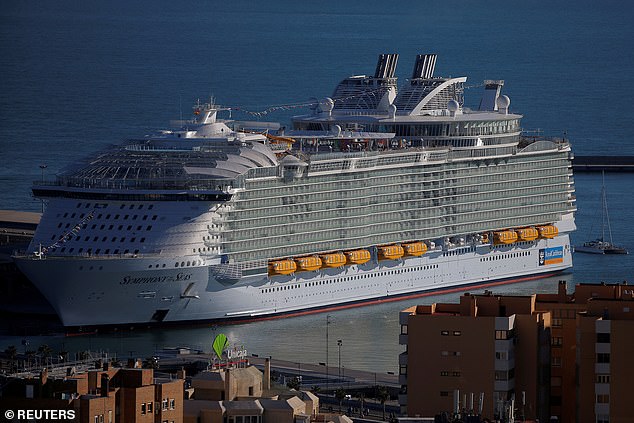Foreign Office tells ALL tourists not to go on cruises due to coronavirus risk, after previously urging over-70s to avoid them
- Foreign and Commonwealth Office (FCO) urges against travel on cruise ships
- Government previously urged over-70s to avoid cruise ships due to coronavirus
- The FCO says new position comes following advice from Public Health England
- Consumer groups has warned decision will lead companies to cancel sailings
Britons have today been urged to avoid travelling on cruise ships due to coronavirus, despite blanket advice against all non-essential foreign travel being lifted.
The Foreign and Commonwealth Office (FCO) has today issued a statement advising holidaymakers against embarking on cruise ships, over fears of the spread of Covid-19.
The government had previously urged over-70s today avoid sailings.
It also comes as the government’s the blanket advice against all non-essential foreign travel was lifted for dozens of destinations on Saturday.
The FCO say the new position comes following advice from Public Health England.
The Foreign and Commonwealth Office (FCO) has today issued a statement advising people against embarking on cruise ships, over fears of the spread of Covid-19. Pictured: The world’s largest cruise ship, Symphony of the Seas, in Malaga Spain, 2018
It has promised to ‘continue to review’ its position and insisted it ‘continues to support the Department for Transport’s work with industry for the resumption of international cruise travel’.
The travel advice means many holidaymakers with future bookings risk having their trips cancelled.
Rory Boland, editor of consumer magazine Which? Travel, said: ‘The FCO’s advice against cruise ship travel will lead to most upcoming cruises being cancelled or postponed.
‘Most cruise holiday customers should be legally entitled to a cash refund within 14 days under the package travel regulations, but as we’ve seen across the travel industry recently, operators facing a surge in refund claims are often taking longer to return customers’ money to them.
‘If refunds will be delayed, cruise companies must urgently let customers know and give a clear timetable for when money will be returned.
‘The FCO should also extend its warning to include a definitive date, to give operators and customers clarity over when it will be safe to rebook.’
In March, the FCO advised Britons aged 70 and over, and those with some underlying health conditions, to avoid cruise ships.
The UK’s biggest cruise line, P&O Cruises, has suspended all sailings until mid-October.
Meanwhile a spokesperson for Norwegian Cruise Line, the third biggest cruise line in the world, which regularly sails from Southampton, said: ‘Our first priority remains the safety, security and well-being of our guests, team members and all those in the communities we visit.
‘As such, we are actively working to enhance our already stringent health and safety protocols and continue to consult with global public health authorities including The World Health Organization (WHO) and the U.S. Centers for Disease Control and Prevention (CDC) to take action as necessary.
‘In addition, this week, we announced the “Healthy Sail Panel,” which consists of experts who are collaborating to develop recommendations that will help us safely resume operations.
‘Despite today’s news, we remain optimistic and hope to relaunch cruise operations in the near future. We look forward to welcoming our guests aboard again soon.’
